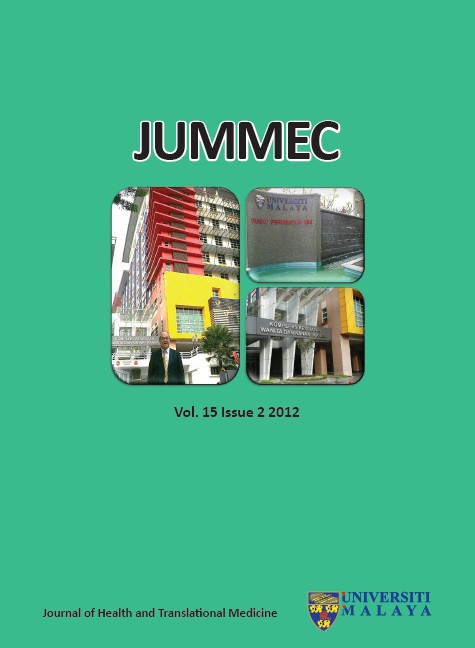THE DETERMINANTS OF CONSUMER HEALTH INFORMATION ON CHRONIC NON-COMMUNICABLE DISEASE: AN EXPLORATORY STUDY IN PENANG, MALAYSIA
Abstract
The objective of the present study is to investigate the impact of socio-demographic factors on the acquisition of health information on Non-Communicable Diseases (NCDs) among Malaysian adults. A robust analysis was conducted on cross-sectional survey data obtained from 398 respondents in Penang (Malaysia) between August to October 2010. An ordered probit model was applied to examine the factors affecting the scale of health information. The results suggest that old individuals, rural dwellers, having chronic disease and history of serious family illnesses are 0.19%, 2.39%, 2.2% and 2.71% less likely to acquire poor health information on NCDs than others, whereas Malays, Chinese, males and those of low educated are 8.76%, 6.22%, 2.94% and 21.62% more likely to acquire poor health information on NCDs than others. Based on these findings, several intervention measures toward increasing the health knowledge among the population are recommended, which include the use of language-based mass media to advertise the information on diseases, designing health awareness campaigns in urban areas and introducing more basic health related subjects and courses into primary and secondary schools.
Downloads
Downloads
Published
Issue
Section
License
All authors agree that the article, if editorially accepted for publication, shall be licensed under the Creative Commons Attribution License 4.0 to allow others to freely access, copy and use research provided the author is correctly attributed, unless otherwise stated. All articles are available online without charge or other barriers to access. However, anyone wishing to reproduce large quantities of an article (250+) should inform the publisher. Any opinion expressed in the articles are those of the authors and do not reflect that of the University of Malaya, 50603 Kuala Lumpur, Malaysia.


